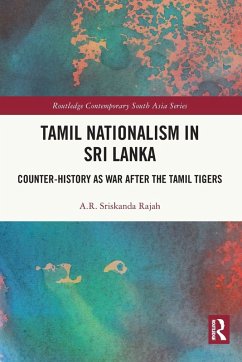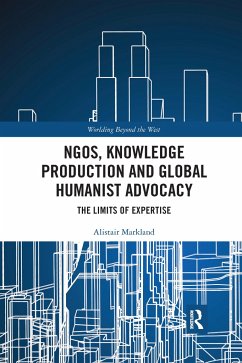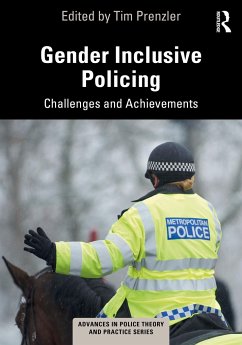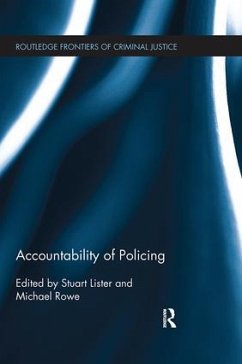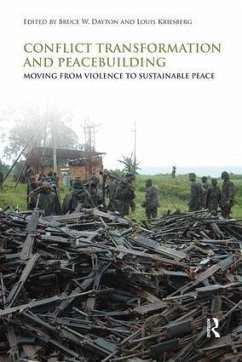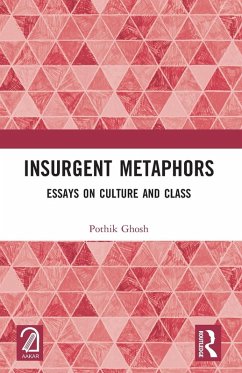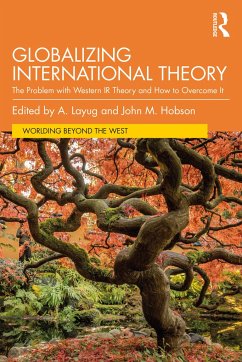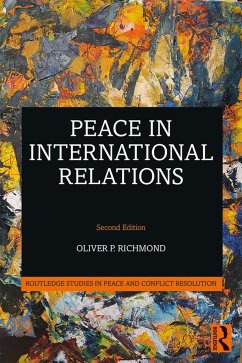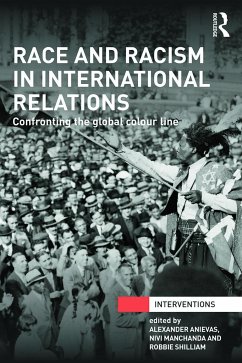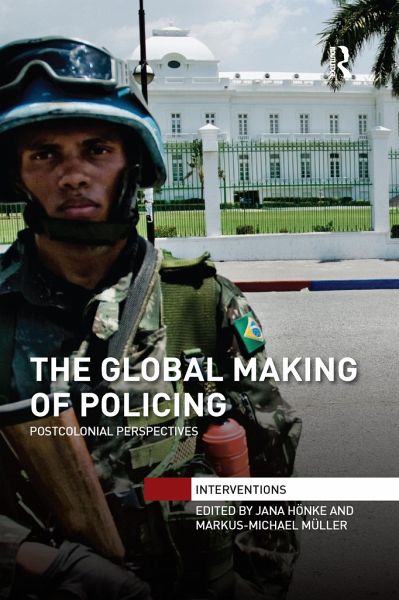
The Global Making of Policing
Postcolonial Perspectives
Herausgegeben: Hönke, Jana; Müller, Markus-Michael

PAYBACK Punkte
23 °P sammeln!
This edited volume analyses the global making of security institutions and practices in our postcolonial world. The volume will offer readers the opportunity to gain a deeper understanding of the global making of how security is thought of and practiced, from US urban policing, diaspora politics and transnational security professionals to policing encounters in Afghanistan, Palestine, Colombia or Haiti.It critically examines and decentres conventional perspectives on security governance and policing. In doing so, the book offers a fresh analytical approach, moving beyond dominant, one-sided pe...
This edited volume analyses the global making of security institutions and practices in our postcolonial world. The volume will offer readers the opportunity to gain a deeper understanding of the global making of how security is thought of and practiced, from US urban policing, diaspora politics and transnational security professionals to policing encounters in Afghanistan, Palestine, Colombia or Haiti.
It critically examines and decentres conventional perspectives on security governance and policing. In doing so, the book offers a fresh analytical approach, moving beyond dominant, one-sided perspectives on the transnational character of security governance, which suggest a diffusion of models and practices from a Western centre to the rest of the globe. Such perspectives omit much of the experimenting and learning going on in the (post)colony as well as the active agency and participation of seemingly subaltern actors in producing and co-constituting what isconventionally thought of as Western policing practice, knowledge and institutions.
This is the first book that studies the truly global making of security institutions and practices from a postcolonial perspective, by bringing together highly innovative, in-depth empirical cases studies from across the globe. It will be of particular interest to students and scholars interested in International Relations and Global Studies, (critical) Security Studies, Criminology and Postcolonial Studies.
It critically examines and decentres conventional perspectives on security governance and policing. In doing so, the book offers a fresh analytical approach, moving beyond dominant, one-sided perspectives on the transnational character of security governance, which suggest a diffusion of models and practices from a Western centre to the rest of the globe. Such perspectives omit much of the experimenting and learning going on in the (post)colony as well as the active agency and participation of seemingly subaltern actors in producing and co-constituting what isconventionally thought of as Western policing practice, knowledge and institutions.
This is the first book that studies the truly global making of security institutions and practices from a postcolonial perspective, by bringing together highly innovative, in-depth empirical cases studies from across the globe. It will be of particular interest to students and scholars interested in International Relations and Global Studies, (critical) Security Studies, Criminology and Postcolonial Studies.




